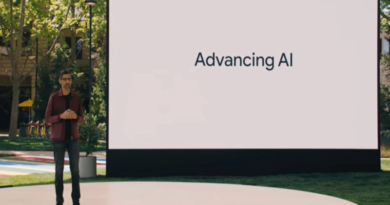Breakthrough NXM Autonomous Security Technology Protects Space Infrastructure and IoT Devices from Cyberattacks
NXM Labs, Inc., a leader in advanced cybersecurity software for connected devices, today unveiled its NXM Autonomous Security™platform that prevents hackers from gaining unauthorized access to commercial, industrial, medical, or consumer internet of things (IoT) devices. Tested in collaboration with the Jet Propulsion Laboratory (JPL), California Institute of Technology (Caltech), NXM successfully demonstrated the ability of its ground-breaking technology to enable future Mars rovers to automatically defend themselves and recover from cyberattacks. Caltech manages JPL on behalf of the National Aeronautics and Space Administration (NASA).
NXM’s engineers worked with JPL’s Artificial Intelligence, Analytics and Innovation Division, Information Technology and Solutions Directorate (ITSD), along with the Robotic Surface Mobility Group in Pasadena, CA to integrate the company’s software with the navigation and ground control systems of JPL’s self-driving Athena test rover. During testing, NXM’s software successfully detected unauthorized attempts to gain access to the rover’s autonomous navigation systems, automatically protecting the vehicle from harm in real-time without impacting normal driving operations.
Tests showed that NXM’s platform was capable of securing millions of devices with virtually no impact on network latency and is able to operate up to 1000x faster than other decentralized platforms previously tested by the U.S. Department of Defense under simulated battlefield conditions.
NXM’s technology is game-changing, NXM provides a new layer of cybersecurity that enables unified command and control, as well as data interoperability, providing an unprecedented capability that we have long sought but until now wasn’t possible.” Harry D. Raduege, Jr, USAF (Ret), former Director, Defense Information Systems Agency
The Athena test rover was developed by JPL as part of NASA’s High Performance Spaceflight Computing (HPSC) program to develop new computing technologies with vastly more capabilities than current spaceflight computers. JPL engineers harnessed the advanced computing power of the rover’s off-the-shelf NVIDIA Jetson edge AI platform to develop innovative, machine learning-based applications for future Mars rovers. This includes artificial intelligence software that identifies objects of scientific interest as a vehicle traverses the Martian terrain, using vision-based navigation and path planning software to significantly increase the driving distances of energy-limited rovers.
We’re thrilled to have collaborated with NASA JPL to show how our security can protect critical assets in space as well as here on Earth, our unique zero-trust and zero-touch security software is chip and cloud agnostic, enabling device manufacturers and their component suppliers to easily and cost-effectively develop the industry’s most trustworthy products that can be deployed rapidly and remain secure for their entire operating lifetime.” Scott Rankine, NXM’s President and Co-founder




